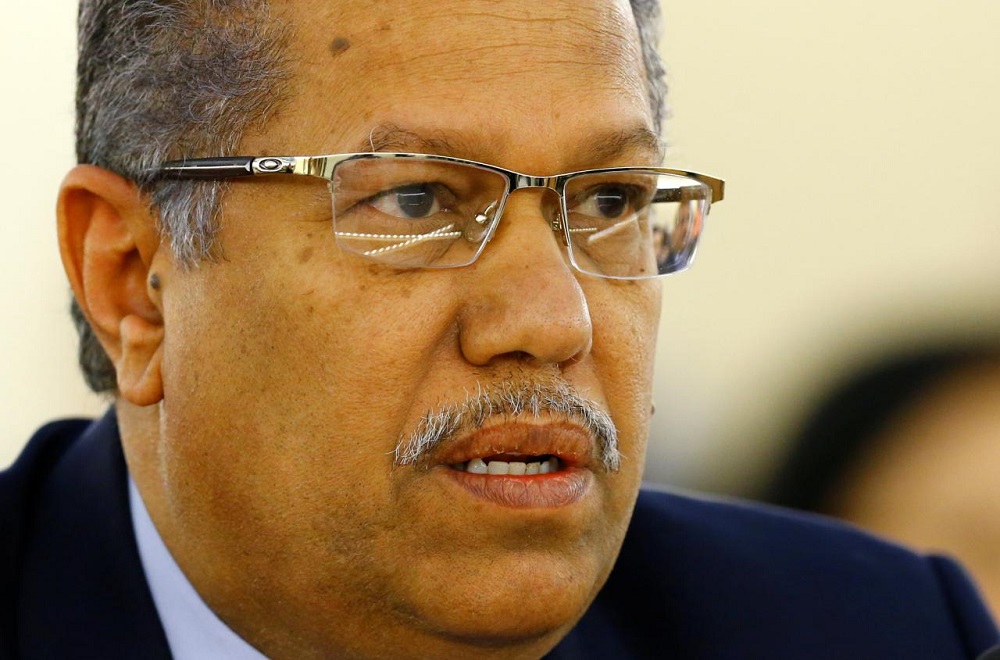Taiz – Insurgency militias in Yemen indiscriminately shelled residential areas in the central Al Bayda Governorate. Most of the attacks coincided with a visit by Ahmed Obeid bin Daghr, prime minister of Yemen, to the national army airbase in the Lahij Governorate, Yemen.
Militia attacks against residential and civilian areas also came in retaliation to the National Army, backed by Arab coalition air forces, advancing in the strategic west coastal fronts, like in Mokha and west of Taiz.
Local sources reported the death and injuries of dozens among militia ranks.
Arab Coalition countries, the Yemeni National Army and popular resistance are making significant advances on all battle fronts, said bin Daghr while inspecting the Karsh front in the governorate of Lahij..
He added that all efforts united will lead to recapturing the national capital, Sana’a, overrun by militias, either through war or peaceful means.
“Victory is imminent and the government is focused on caring for the families of martyrs and the wounded, whose sacrifices for their countries will always be remembered,” he added.
He was also quoted by the official Yemen News Agency as saying: “We pursued a just and comprehensive peace and made plenty of compromises to achieve that, but those who staged the coup have not heeded such initiatives and continued their aggression. They rejected the UN proposal of Hodeidah, which was accepted by the government out of its desire to end the suffering of the Yemeni people.”
More so, militias intensified the shelling of the residential in Dhi Na’im and al Zahar districts, leaving behind losses among the citizens.
In 2014, Iran-backed Houthi militias, joined by armed loyalists backing ousted President Ali Abdullah Saleh, overran the Sana’a. Since then a Saudi-led Arab coalition was formed to reinstate the nation’s constitutionally elected government into power, given that the administration led by Abdrabbuh Mansur Hadi was forced to relocate to Aden.
